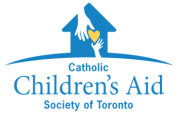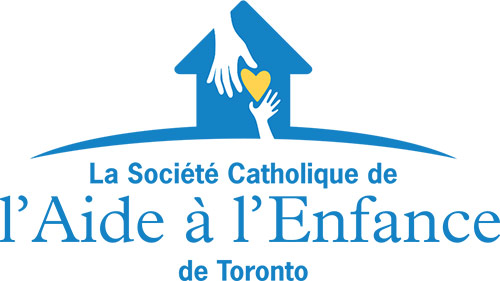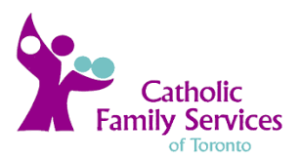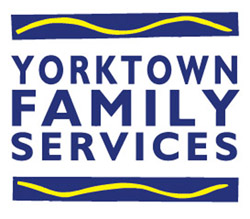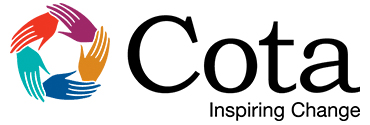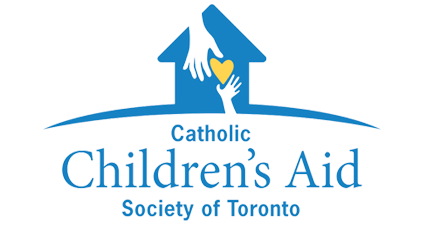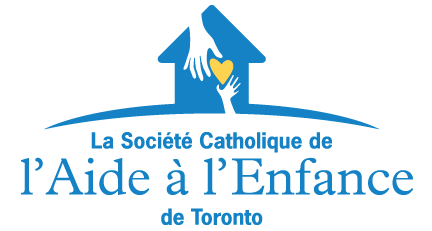
Support Services
Our Access Program




Facilitated Conference Program
The Catholic Children’s Aid Society of Toronto’s Facilitated Conference Program offers a collaborative approach to family decision-making. We believe families know best and create the most effective plans. Our facilitated conferences give families a strong voice in decision-making, including participation from trusted individuals like extended family, friends, and community members. A trained facilitator guides the process, ensuring everyone can share strengths, concerns, and ideas to ensure family safety and well-being.
A Facilitated Conference can be used in many situations. Some examples include:
- Supporting families to keep children at home: Bringing together support networks and service providers to create plans that prevent children from needing to come into care.
- Exploring family care options: Connecting children in care with extended family who may be able to provide a loving home, while ensuring they stay connected to their parents and other important people.
- Working together to keep plans on track: Regularly meeting with families and workers to review progress and make sure everyone is working towards the same goals.
- Finding common ground: Helping families and service teams work through disagreements and find solutions that work for everyone.
- Planning visits that nurture family connections: Developing and coordinating visits that support positive relationships between children and their families.
- Providing support for young people: Supporting youth in the community, those leaving care (VYSA), and other young people navigating challenging situations.
Anyone can request a meeting. Families and service providers can both request a conference when they feel it would be helpful.
Family Finding
Family finding is a vital process focused on establishing permanent, caring relationships and lifelong connections for children, youth, and their families. At CCAS, our Family Finders work to identify and connect with relatives and other significant individuals considered family. We build supportive networks by:
- Contacting family members through various methods, including phone, email, letters, and in-person meetings.
- Utilizing online resources and social media platforms (e.g., Facebook, Twitter, LinkedIn) to locate additional relatives.
- Reviewing child welfare records to gather relevant family history and information.
To Young People in Care

Building Safe & Permanent Futures for Children
Child safety, well-being, and permanency are at the heart of our work. Permanency looks different for every child and family. It can include:
- Family members actively supporting plans, potentially leading to reunification.
- Children living with relatives or kin, providing a stable family home.
- Building lifelong family connections and support networks for children.
Benefits of family finding
Family finding offers many advantages:
- Support with child planning and major decisions
- Learning about your family history
- A sense of belonging and acceptance
- A stable home
- Shared life experiences and support
- Trusted relationships
- Diverse perspectives

Family Support
Our Family Support Program offers help to families in the community and Resource Families (Kinship, Foster, Adoption) receiving protection services from CCAS.
This voluntary support program collaborates with caregivers, children, and youth to set goals for services and interventions. Our Family Support Workers provide information and connect families with community resources that strengthen family relationships, attachment, parenting skills, and permanency.
What we offer:
- Child Development Support: Helping parents/caregivers understand child development and age-appropriate behaviours.
- Strengthening Family Relationships: Supporting positive family relationships and interactions.
- Trauma-Informed Care: Promoting understanding of the impact of trauma, loss, and grief on child behaviour, enabling caregivers to provide better support.
- Family-Centered Approach: Placing families and caregivers at the center of the support program, empowering them to set goals and direction.
- Community Resource Navigation: Providing information and connecting families with appropriate community resources.
- Support for Special Needs: Connecting families caring for children/youth with special needs, or where a parent has special needs, to additional supports.
- Promoting Permanency: Providing services and support that promote permanency for children and youth.
Health Specialists
The Health Specialists Team responds to CCAS referrals by providing in-home support to families with infants and young children, focusing on promoting health, well-being, and safety for both parents and children. We actively connect families to appropriate community health resources and services.

Community Partners
For some helpful tips and guidance to keep your child safe, please see these links.
Safety Tips:

Immigration Program Services
In response to the evolving needs of Toronto’s diverse population and recognizing the growing number of families affected by unresolved immigration issues, CCAS has created an Immigration Program dedicated to providing equitable supports and services for children and young people in care, as well as families in the community.
The services of our Child Protection Immigration Specialist are unique to CCAS and provide the following types of assistance:
- Immigration Documentation and Support: Assisting children and youth with preparing immigration documents and navigating immigration proceedings.
Pro Bono Legal Referrals: Providing referrals to pro bono legal services for immigration matters.
- Securing Legal Status and Citizenship: Supporting children and youth in extended Society care and the community in obtaining legal status and Canadian citizenship.
- Immigration Resource and Consultation: Serving as an immigration resource for CCAS staff, community members, and community partners.
Violence Against Women Program
Domestic violence is a serious issue impacting many families within the child welfare system. Children who witness intimate partner violence (IPV) are at heightened risk for a range of emotional, behavioural, and developmental difficulties, including internalizing and externalizing behaviours, post-traumatic stress disorder (PTSD), substance use, and academic struggles. Recognizing the profound impact of IPV on children and their caregivers, CCAS has partnered with violence against women (VAW) services from Catholic Family Services and Yorktown Women’s Shelter to provide specialized support.

This innovative co-location program provides women with dedicated support from VAW workers who offer a safe and voluntary space to explore their experiences with the cycle of violence and develop personalized safety plans. This specialized support goes beyond the capacity of traditional child welfare services, ensuring women have access to expert knowledge of relevant community resources that meet their unique needs.
Furthermore, the program fosters valuable knowledge sharing between VAW workers and child protection staff. This exchange of expertise strengthens the ability of child protection workers to effectively support families navigating the complex challenges of domestic violence.
Complex Special Needs Services
Children and youth with special needs are individuals who require multiple supports and services to help them thrive. Our Special Needs Team is committed to providing specialized, quality care to children and youth with special needs that values inclusion, belonging, and facilitates a smooth transition to adulthood. We make connections to service from the initial phone call and link families with help in the community. We provide consultation, education and direct service to children/youth with special needs.


FASD
Fetal Alcohol Spectrum Disorder (FASD) services are provided by a team of trained specialists at CCAS. These services include: consultations, training, raising awareness events, and providing information and linkages to community-based services. We co-facilitate a monthly FASD Support Group for caregivers who are raising children/youth who have, or are suspected to have, FASD.
We do have access to FASD Respite Funding for approved families. Please connect with your CCAS worker to find out more.

French Language Services
The Catholic Children’s Aid Society of Toronto is a designated French Language Service agency that connects Francophone children, youth and families to supports and services in their language of origin. We are committed to providing child protection services in your preferred language and referrals to French language community partners who can support you and your family. If you would like to receive services in French or prefer to speak with someone in French, please indicate your preference when calling our agency. You can also visit our French website for more information.
